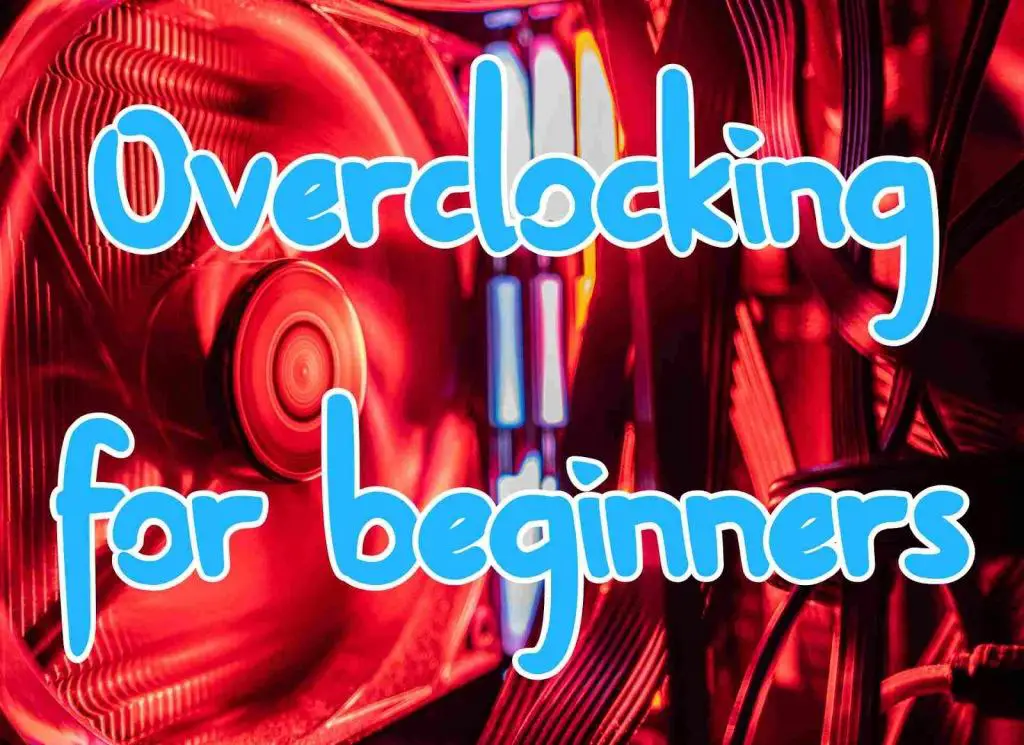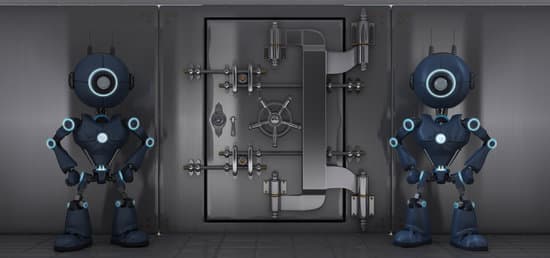What is Overclocking? Overclocking for Beginners to Advance. We have covered the basic fundamental of Overclocking in this article. You can refer to our advanced level for Overclocking GPU, Overclocking CPU, and RAM to boost gaming experience as well as PC response.
Overclocking is just the process of pushing your device and its components a little more and squeezing the performance. Now the manufacturers tested the components and set a limit for them to run naturally, mostly measured in Megahertz (MHz). Now we know this sounds too good and you would like to buy a lower-end PC and overclock it. But it is not this simple and not the magical process.
Overclocking can increase the speed of a PC to a certain level, but it does not mean that it is this simple. We are talking like a 5-10% or even a 15% increase in the performance which does seem like a lot but there is a catch. The more you overclock your system the more it gets unstable and will crash more often. Now it really does not make sense if your system crashes and you have to wait for it to restart every 10 minutes. Now the process is not as easy as it sounds, it’s a complex process and we will try to understand it. However, we will not go into much detail about overclocking in this article but we will give a link for those articles.

What Is Overclocking?
The term “overclocking” has the term “clock” and “over” simply means pushing it over the brink or what it was made for. Now the manufacturers set the GPU to max out at a certain speed, this speed is known as “clock speed”. Now you can run the GPU at its peak or maximum clock speed with proper cooling. However, if you are not satisfied with the performance then you are not limited to that pre-fixed clock speed. You can increase the clock speed of your GPU with the help of any overclocking tool to increase the operations per second.
Note: You will be needing an overclocking tool for achieving this and we will be discussing what it is and how to use it. A higher clock speed will increase the raw power of your CPU which in turn makes your PC more powerful. But this will produce more heat and more heat which can damage your GPU or shorten its life. And if you decide to push your system without a proper cooling system then you will lose your GPU over time. So cooling your GPU is more important than anything while overclocking. Now you can decide to overclock your processor and RAM along with other components. Now if you want to overclock your processor then we made an article for you which makes it easier and safer.
Overclocking in Simple words
In other words, overclocking is the process of making a GPU’s core clock increased and running at higher clock sleep. This can be useful then you squeeze just a little more performance out of your GPU and get the game running.
Overclocking is nor limited to the GPU, you can overclock other components also such as CPU, RAM, cooling system, and more. Now unlike GPU, you can not overclock the CPU from within the windows. You need to get in the BIOS of your system, BIOS stands for “Basic Input / Output System”. We will discuss more in your about how to get in the BIOS and how to overclock the CPU.
Overclocking is more about stats than having random guesses about what you need to increase or decrease. You need to see what you should tweak in order for your system to give more output or raw processing power.
Sage by altering some settings. Generally clocking refers to the limit of performance by a PC; a higher clock rate gives a higher operation. Usually, gamers may increase it beyond the manufacturer’s specifications to enjoy extra benefits. This is called overclocking.
Should you Overclock?
You must be wondering now whether you should overclock your system in the first place or not. And this is a very common doubt for people who are new to overclocking, we had the same doubts about overclocking. You can overclock your GPU to get more FPS (Frames Per Seconds) out of it and have a better experience. However, you can not always overclock your CPU as some motherboards are not designed this way. These motherboards prevent you from tinkering with the values, this is for your safety. As most motherboards can’t handle the increased load and can get damaged if someone without proper knowledge pushes it too much. If you are looking for a processor that you can overclock then look for “k” for example, Intel i9 9900k, Intel i9 10900K.
We hope you got your answer about whether you should overclock your system or not.
Why You Might Want to Overclock
There are a number of advantages of overclocking like faster CPU/GPU, more raw performance, increased capability to handle heavy apps. And over the years overclocking has become more of a necessity rather than a royalty. A few years back overclocking was done by PC enthusiasts who wanted to push their system to edge. Or by bitcoin miners who pushed their GPU to the level where their life was drastically removed.
But nowadays people do it on a regular basis, not as hard or as much as other peoples. If you are a gamer then we would suggest you go for the overclocking, GPU overclocking along with CPU overclocking. But the difference will be small for example, you are getting 52 FPS without overclocking even after doing everything. After overclocking you will get around 60-65 FPS, this makes the difference between choppy gameplay and smooth gameplay experience.
Myths most people believe
There are a number of myths that people believe in about overclocking to this day. But let us tell you that overclocking will void the warranty of the component. Overclocking may damage your hardware if you do it regularly and push hardware too much. Lets now see some of the myths that people believe about overclocking.
- You need water cooling for overclocking
This is not the case nowadays as GPUs and CPUs have high operational temperatures along with better heat syncs. This means you no longer need those expensive water cooling systems or even those big noisy fans. But there are some advantages of having a better cooling system such as longer component life. However, it depends on your requirements and we would suggest you keep the current cooling system and watch the temperature.
- The same model processors with different MHz will have the same overclocking results
This is a very misconception that if your favorite YouTuber has the i9 processor then you can get the same overclocked numbers. This usually depends on other components also which you have installed in your system. So if your buddy can overclock his system to 6 GHz this does not mean that you should try to achieve the same level.
- You need expensive components for overclocking
It’s not important that you can only overclock if you own an expensive setup, like in the range of $800 or more. You can overclock your setup despite the cost, however, the overclocked results will vary accordingly. If the system is not very powerful in the first place then overclocking will not make any significant difference. So you can overclock your system no matter what your system specifications are.
Read more: Best CPU Heatsink
Some basic terms
Warranties
It is very important for some people as expensive hardware needs to have a warranty as they are prone to run into problems. There was a similar case with the Nvidia RTX graphic cards, they were prone to break down randomly. In such cases, you should keep your hardware under warranty, as overclocking will void the warranty. Some sellers offer a warranty which covers the overclocking, so you should take a closer look at your warranty.
This means that if you have an older system then you should not worry about the warranty. And there are different measures to protect your hardware from getting damaged while overclocking.
Voltage
Whenever you will be overclocking your CPU or GPU or even RAM then the power input will be in terms of volts. This affects how much power is giving into the components and more power will mean more raw power. But keep in mind that GTX 960 consumes more power than a GTX 1050, but it does not mean it is as effective. You will need to increase the voltage as you increase the MHz of your GPU/CPU.
Don’t Miss: How to check which motherboard best for any processors?
Heat
This is something that all people hate about overclocking and in general about high-performing components. There is always a loss of power in any system, and this loss increases with high processing or working components. We will not go in-depth with the topics but you get the idea, this is why we get heat syncs and cooling systems.
Read More: Best CPU Thermal Paste with Working
Overclocking GPU
This is exactly what it sounds like, we will only be overclocking GPU or GPU along with different components. But there are some things you should keep in mind while overclocking as not to damage the component. If you want to learn more about GPU overclocking then check out our article on it.
Overclocking CPU
Now it is not similar to GPU overclocking as you will need to use BIOS for changing the values. The process is a very long and sensitive process. We would suggest you do not try overclocking CPU without knowing everything about it. So we made an article for you to overclock your CPU safely and effectively.
Summary
We dived in the basics of overclocking and why you should overclock. Now, this was just an introductory article on overclocking and if you want to overclock your CPU, GPU or RAM then check out our dedicated articles. We would suggest you do not try it without knowing about the process. The chances of you damaging your system are low but still quite possible, also the overclock should be effective. It is possible that you overclock your system but do not get any significant increases in processing. Keep in mind that raw power does not mean that you are getting good performance.

I am a Computer Science Engineer, have a passion for coding, sketching, and teaching. I took part in various college technical activities and was Mr. Fresher in the 1st year along with the college’s face. Spends most of the time learning new things and coding small codes for little fun and also as academic, keeping Python 3, Android as priority language for coding.
I love writing tech tips with 100% success and enjoying this new side of life. Finding a passion for new things and letting unlock my creativity and hoping to learn new scientific stuff on the journey of life and being grateful for smaller things.


